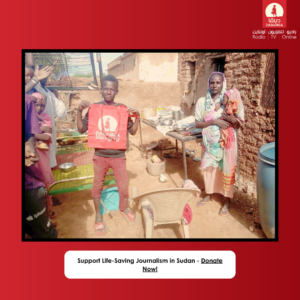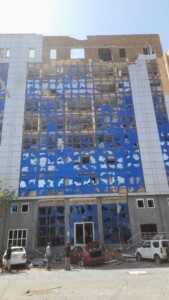Prior NISS censorship of newspapers restored in Sudan
Sudan’s National Intelligence and Security Service (NISS) has restored prior censorship of newspapers after a five-year hiatus.
 File photo
File photo
Sudan’s National Intelligence and Security Service (NISS) has restored prior censorship of newspapers after a five-year hiatus.
Prior censorship means that officers from the security apparatus come to the printing press once the newspaper is ready to be printed, and review and remove material they do not want to be published.
Previously, before the prior censorship was lifted, security officers would come to the newspaper's headquarters at night; prevent the publication of articles that do not agree with their policies, however, censorship has directly moved from press headquarters to printing presses.
Journalists told Radio Dabanga that the security apparatus had ordered the printing presses not to print newspapers until they are read by their affiliates.
The Network of Journalists for Human Rights (JAHR) condemned the return of prior censorship to the newspapers and considered it an indication of the increasing security grip on the press in the coming period.
Economic crisis
Journalist Feisal El Bagir, the network's general coordinator, attributed in an interview with Radio Dabanga, the return of prior censorship to the inability of the security apparatus to control the news of corruption and the dire economic crisis as a prelude to imposing an undeclared State of Emergency in preparation for the 2020 elections.
He stressed that the security apparatus will not be able to withhold information from the people by prior censorship, confiscating newspapers after printing or banning journalists from writing.
He told Radio Dabanga that digital journalism, social media and instant messaging groups have allowed information to quickly reach citizens without any censorship.
He said that the new Press Act aims to get the press into the house of obedience, explaining that these methods would not resolve the crises of the government.
Confiscation
The editor-in-chief of El Jareeda newspaper, Ashraf Abdelaziz, said that the confiscation of the newspaper by the security apparatus for three consecutive days has caused it great losses estimated at SDG 200,000 (*$7,000).
He told Radio Dabanga that the security apparatus has followed a new method of confiscation by preventing printing presses from delivering newspapers to distributors before 8 a.m., which prevents the newspaper from reaching the distribution centres in the capital and the states.
He explained that the administration of the newspaper declined to receive the newspaper from the printing press, considering the procedure to be a circumvented confiscation.
He pointed to the great impact of the confiscation on the economics of newspapers in the light of the high prices of printing input, pointing out that it would be reflected negatively on the publishers, the journalists and the public opinion.
Media in Sudan are constantly subjected to attacks on press freedom. The country is ranked at the bottom of the World Press Freedom Index by the global monitoring institution Reporters Sans Frontières.
* Based on the indicative US Dollar rate quoted by the Central Bank of Sudan (CBoS)











 and then
and then